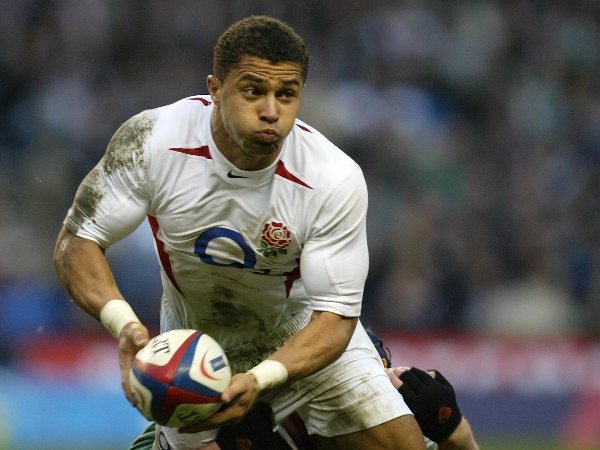Jason Robinson: Rugby’s Dual-Code Legend Who Transformed English Sport
From Rugby League Dynamo to Rugby Union World Cup Hero – The Remarkable Journey of Jason Robinson

Jason Robinson is a name etched deeply in the history of English sport, celebrated for his trailblazing success in both rugby league and rugby union. Known for his unmatched speed, agility, and determination, Robinson became one of the few athletes to master both forms of the game at the international level. His legacy is not only defined by his numerous accolades but also by the inspiration he provides to young athletes, especially those from underprivileged backgrounds. This article delves into Jason Robinson’s life, career, achievements, and impact, offering a comprehensive look that informs and engages.
Early Life and Background
Jason Thorpe Robinson was born on 30 July 1974, in Leeds, West Yorkshire, England. Raised by his single mother in a working-class neighborhood, Robinson’s early life was marked by challenges. He often speaks about his upbringing and the struggles he faced, including poverty and a lack of opportunities. Despite the odds, he found solace and purpose in rugby, which would eventually change the course of his life.
His introduction to rugby came during his school years. He quickly stood out for his electrifying pace and fearless playing style. As a teenager, he joined the Hunslet Boys Club, which laid the foundation for his future in professional rugby.
Rising Star in Rugby League
Jason Robinson began his professional career with Wigan Warriors, one of the most prestigious clubs in rugby league. Making his debut at the age of 19, he rapidly rose through the ranks, known for his explosive speed and powerful runs. At Wigan, he played a key role in multiple championship wins and Challenge Cup triumphs during the 1990s.
Robinson earned 12 caps for Great Britain and 7 for England in rugby league, showcasing his prowess on an international stage. His ability to break defensive lines and create scoring opportunities made him a fan favorite and a feared opponent.
During his time with Wigan, Robinson was part of a golden era that saw the club dominate British rugby league. His standout performances earned him comparisons to some of the greatest players the sport has ever seen.
Transition to Rugby Union
In 2000, Jason Robinson made a bold move by switching codes from rugby league to rugby union—a transition that many critics doubted. He joined the Sale Sharks, and it didn’t take long for him to silence his detractors. His exceptional skillset seamlessly translated into the union game, where he quickly became a star.
Within a year, he was called up to represent England in rugby union, becoming one of the few dual-code internationals. His debut was marked by the same explosive energy he displayed in league. Fans and experts alike were astonished by how easily he adapted to the different rules and pace of rugby union.
World Cup Glory and Captaincy
The pinnacle of Robinson’s rugby union career came in 2003, when he played a crucial role in England’s Rugby World Cup victory. In the final against Australia, Robinson scored England’s only try, a pivotal moment in the historic match. His contributions throughout the tournament were instrumental in securing England’s first and only World Cup title in rugby union to date.
Following this triumph, Robinson’s leadership qualities were recognized, and he was named captain of the England rugby union team. He made history as the first black man to captain England in rugby union, breaking racial barriers and becoming a role model for many.
Jason Robinson Age and Personal Life
As of 2025, Jason Robinson is 50 years old. Despite retiring from professional rugby, he remains deeply involved in the sport and continues to influence it through coaching and mentorship.
Jason Robinson has a large family and has often spoken about how fatherhood changed his perspective on life. He is the father of seven children, and his eldest son, Lewis Tierney, has followed in his footsteps, becoming a professional rugby league player. Family plays a central role in Robinson’s life, and he often shares insights about parenting and the balance between career and home life.
Life After Retirement
Robinson retired from professional rugby in 2007, but his involvement with the sport never ceased. He took on various coaching roles, worked as a rugby ambassador, and engaged in numerous charitable activities. He has been vocal about the need to improve access to rugby in inner-city areas and often visits schools and communities to promote the game.
He was awarded the title Officer of the Order of the British Empire (OBE) for his services to rugby, further solidifying his status as a national treasure.
In recent years, Robinson has also spoken openly about his struggles with mental health, using his platform to raise awareness and reduce stigma. His honesty has resonated with many, making him a respected figure beyond the world of sport.
Jason Robinson Wiki and Wikipedia Overview
A search for “Jason Robinson wiki” or “Jason Robinson Wikipedia” provides a well-documented account of his career, detailing both his league and union exploits. These entries highlight his statistics, clubs, international caps, and key achievements. However, beyond the raw data, what stands out is the story of resilience, adaptability, and impact.
Robinson’s Wikipedia page is a testament to his multifaceted career. It outlines his journey from humble beginnings to becoming one of the few athletes to excel in both codes of rugby at the highest level. His life story serves as a powerful narrative of perseverance and success against the odds.
Cultural Impact and Legacy
Jason Robinson’s impact goes far beyond the rugby field. He shattered stereotypes and redefined what was possible for players switching between codes. More importantly, he brought diversity to a sport that has historically struggled with inclusivity.
He has been a vocal advocate for using sport as a tool for social change. Through various initiatives, Robinson continues to promote rugby as a means to uplift and empower youth, particularly in economically disadvantaged areas.
His nickname, “Billy Whizz,” derived from a comic book character known for his speed, perfectly encapsulates the dynamism he brought to the game. Whether weaving through defenders or inspiring young athletes, Jason Robinson’s influence is far-reaching and enduring.
Final Thoughts
Jason Robinson is more than just a rugby legend; he is a symbol of transformation, perseverance, and excellence. His story—from a challenging childhood in Leeds to global rugby stardom—demonstrates what can be achieved with talent, hard work, and the right support.
In a world that often draws lines between disciplines, Robinson blurred them with brilliance. He is a true dual-code icon who continues to shape the sport and the lives of those who look up to him. Whether you’re discovering his story through a “Jason Robinson Wikipedia” search or watching clips of his iconic tries, one thing remains clear: his legacy is built to last.



